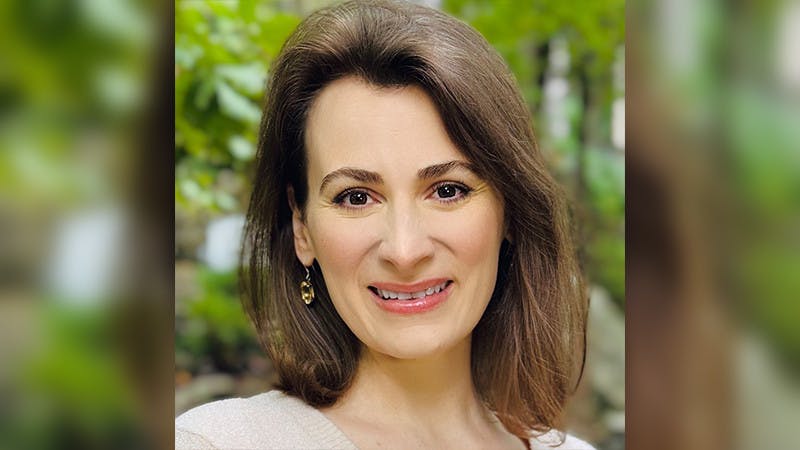Matthew Taff says that to end the polarization of the University's student body, we must begin looking beyond race. Unfortunately, Penn's student body is also extremely polarized, and this is what the recruiting videos don't tell you. Sure, we've got a very heterogeneous population, but instead of that fabled "melting pot," what we've got is lumps of people sticking with "their own." If you don't believe me, take a good look at who sits where in campus dining halls, and tell me that I'm seeing things. Webster's Dictionary defines "segregation" as "the practice of separating from the main body an ethnic or other group, as in education, housing or employment." Under this definition, make no mistake, we are a segregated campus. The fact that this segregation is self-imposed just makes it all the more tragic. Now, I'm not going to bore you with my opinions on randomized housing; the question I want to ask is one that only recently occurred to me: What happens to the students caught in the middle? Regardless of your opinion on people sticking with their own "kind," the fact is that it is achievable, and what's more, it's easy -- for most of us. But what if you don't have a "kind?" What about students who are the product of mixed marriages? What about students who are natives of one region, but grew up in another? Nowadays, it seems that every possible minority has its own student association, whether it is ethnic, religious or racial in nature. To my knowledge, there are no "half-and-half" groups. With more and more people clumping together, it is very easy for students of multiple backgrounds to feel isolated and unwelcome on both sides. What's worst of all is that people with backgrounds like these are precisely the ones we should welcome. They, unlike most of us, have already learned that race should not matter. Out of all the people I have ever known, my friends with mixed backgrounds have always been the most comfortable dealing with people of other cultures. Why is it that these mixed people, who are often the most willing to look beyond race, are so often the ones excluded because of their own heritages? When I first began contemplating how I would write this column, I considered a number of possible reactions it might provoke. One reaction I most expected was "Who are you to write about this?" I'm a white Jew from New Jersey, and on this campus, that's hardly a minority in any possible sense. So, who am I to write a column about racial and ethnic minorities? To speak about groups of which I'm not even a part? Well, I'm not claiming to speak for anyone but myself, and the fact that I am or am not a minority has nothing to do with the veracity of my claims. I have heard, seen, met and spoken with enough people to convince myself that this is the way things are -- and now I'm merely trying to draw our attention to it. The fact that I'm white doesn't mean I can't see, and it doesn't take much vision to notice the racial tensions plaguing this campus. As Cassius said in The Tragedy of Julius Caesar, "The fault? lies not in our stars, but in ourselves." By segregating ourselves and by creating students groups that perpetuate this segregation, we encourage the idea that people can be defined solely on the basis of their race. Our time at college is a time when we can -- and should -- discover and redefine our identities. It is a time when old stereotypes can be destroyed and new ones created in their place. For many, it is natural to define parts of personal identity in terms of ethnic background. And in many ways, student cultural organizations buttress this view. By encouraging students to associate with their own because this allows them to be most "comfortable," these groups reinforce the idea that it is best for students to isolate themselves. Of course, student leaders will cry that they are doing nothing of the sort; that all who are interested are welcome to participate in activities sponsored by these groups, and that it is not their fault that others among us are so short-sighted that they feel uncomfortable or unwelcome. However, I am talking about results, not speech. Saying "all are welcome" is fine, and many of them genuinely mean it, but that fact is that this does not happen. Many of these groups are separatist, by action if not by intent. So what can we do to rectify this situation? Some say nothing; more say nothing should be. Many people have told me that it is human nature to be racist; it is in our genes to place greater value on those of our own "tribe" than on others. I disagree. That tribalistic culture is part of our animal nature, an evolutionary leftover from the past. One of the greatest triumphs of humanity is the ability to see beyond race; the concept that people are people, regardless of their skin color, their chosen God or their culture. I have heard that a world without races would be a world without any variety, one that we would not want to live in. I, for one, would willingly, eagerly sacrifice the diversity of art, music, food, language, writings and culture that I have experienced if it meant that my children could live in a world without hatred, bigotry and discrimination.
The Daily Pennsylvanian is an independent, student-run newspaper. Please consider making a donation to support the coverage that shapes the University. Your generosity ensures a future of strong journalism at Penn.
DonatePlease note All comments are eligible for publication in The Daily Pennsylvanian.






